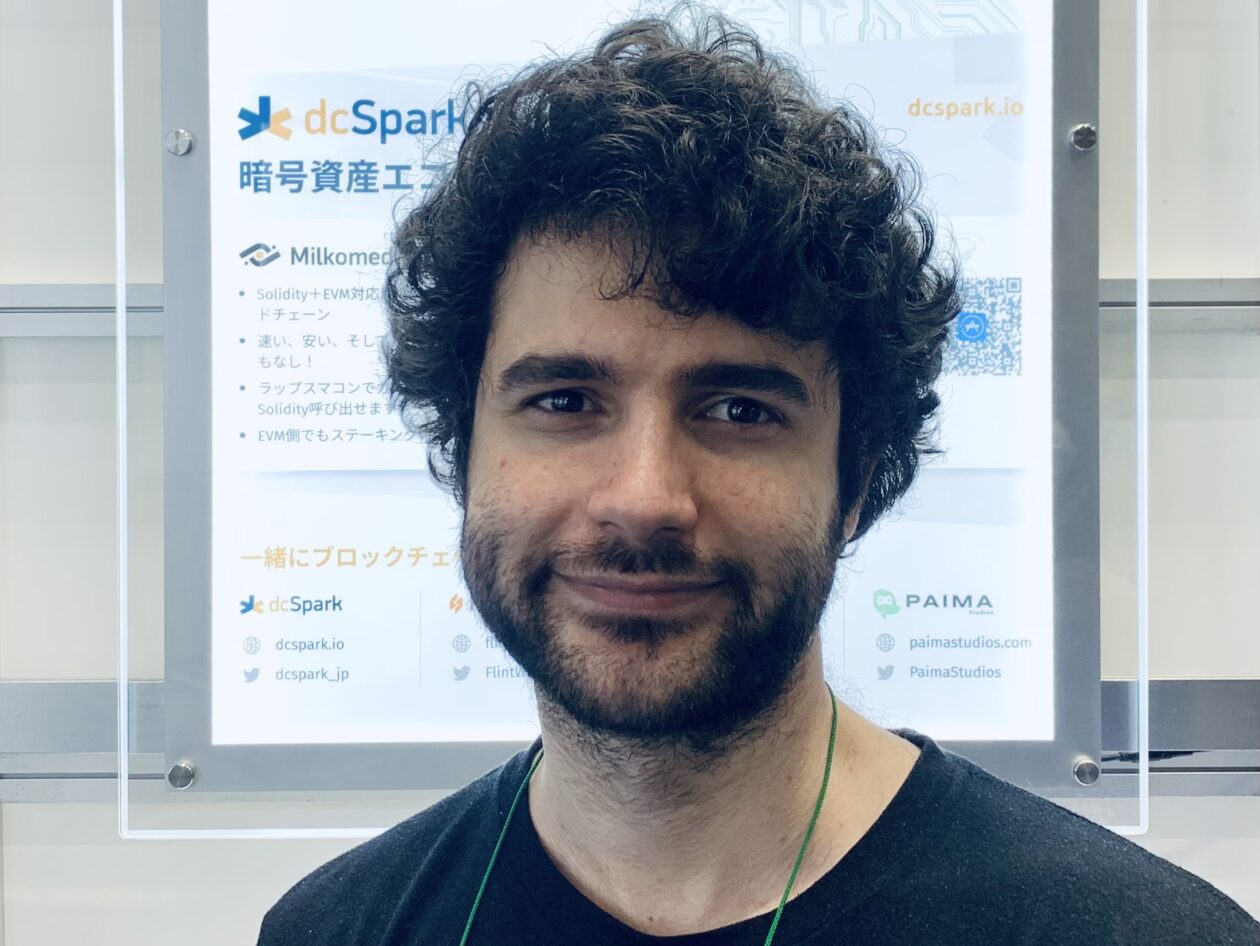After years of stagnation, Japan’s re-engagement with Web3 — a new phase of the internet built around decentralized blockchain technologies, the metaverse, and non-fungible tokens (NFTs) — is up and running, although regulatory changes and tax updates are needed for the growing sense of momentum to lead to genuine progress.
That was the key message to emerge from the blockchain-related events at the NexTech Week trade show, which came to a close Friday after a three-day run at the Big Sight conference venue in central Tokyo.
One blockchain developer in attendance at the event was Sebastien Guillemot, co-founder of Web3 gaming engine Paima Studios.
He spoke to Forkast about opportunities and challenges in Web3 game development, offering timely advice to any overseas companies looking to expand in Japan at a time when the government of Prime Minister Fumio Kishida is actively promoting the sector.
The Q&A has been edited for clarity and length.
Forkast: Could you tell me a little bit about Paima Studios and your work there?
Sebastien Guillemot: We’re a framework for creating application specific layer tools optimized for gaming and gamification use cases. What we’ve seen is that there are a lot of people who want to build online games. But it’s really difficult, because to build an on-chain game, you need a lot of NFTs. You need NFTs for characters, for items, for levels and this ends up costing a lot in mint costs.
So we’ve created a framework for producing application specific games. It’s kind of like an NFT compression protocol. You can mint a single NFT on layer 1 that represents the user account and then associate the data inside that account — such as their wins, losses, items, history and so on — on layer 2.
Not only does it allow users to create games easily using any Web2 system they want, be it JavaScript, Unity, Game Maker, or anything else, it also saves them over 90% on gas costs, given this more flexible environment.
Forkast: You personally are based here in Tokyo and Paima does a lot of work with Japanese companies. So why Japan?
Guillemot: Good question. I think there are a lot of projects in Japan that specifically want to move into gaming and gamification. Additionally, a number of Japanese gaming companies, such as Bandai Namco, Sega, and Square Enix, have announced their intent to move into the blockchain gaming space. So there’s quite a lot of interest in gaming in Japan, alongside interest from the bigger gaming companies to make the move into Web3.
Then, on top of that, the Japanese government is really actively promoting blockchain use cases, saying that Japan wants to be a leader in Web3. A lot of Japanese companies are taking this as a sign to move into gaming or gamification — commemorative NFTs and other similar use cases that are gamification-like. These companies are able to build really awesome experiences really fast in just a few days. At Paima, we’re working with these companies to bring their use cases to life.
Forkast: Particularly in comparison to crypto-friendly places like Singapore and Dubai, what are the business conditions like here for non-Japanese entrepreneurs and developers?
Guillemot: The main thing to take into account right now is that, in Japan, there’s still a lot of regulation that’s still not in place. A lot of the tax measures aren’t in place either. So the tax situation isn’t good and regulations remain really strict. The government has announced plans to change its regulations to make Japan friendlier for Web3. So we’re at a stage where a lot of companies are trying to guess what the government regulation is going to be and to position their company in the right place for the new environment that emerges.
So if you’re interested in doing something in Japan, take a look at what the large companies are doing, where they’re putting their efforts, because they have the best insight into how the rules may change. And also keep an eye on the regulatory environment and how that’s evolving over the next 20 months. The Japanese government keeps putting out new press releases and white papers outlining the changes they’re planning. So it’s best to follow those announcements to see what business opportunities might exist for you.
Forkast: And how do events like NexTech Week help the Web3 space develop?
Guillemot: Japan’s blockchain and Web3 space is actually quite small, relatively speaking. It’s a fairly tight-knit community. So this is a great event to meet all the other players in the blockchain space, talk to them about what we’re all doing and really build a strong community in order to tackle Web3 adoption together.
In the U.S., it’s a very competitive environment, especially in the global sphere. There are so many English speakers out there that whenever there’s a new potential way to differentiate your product, everybody just claws at it to try to pull away from the competition.
Japan is different because the community is smaller and so it’s all about working together and building out the community together. And you can see that at these events where everybody’s getting to know each other and seeing what kind of synergies might exist.
Forkast: Finally, can Japan take that next step to become a globally competitive hub for Web3?
Guillemot: Yeah, I think a lot of stuff is being put in place to make that happen. Obviously, Japan is one of the largest markets in the world. It’s one of the highest GDP per capita countries in the world. And it also has some of the most well recognized brands, not only in gaming, but just brands in general.
If Japan can really grab the bull by the horns and bring all these brands into a global environment via the blockchain, it has huge potential to become one of the leading countries in the Web3 space.

